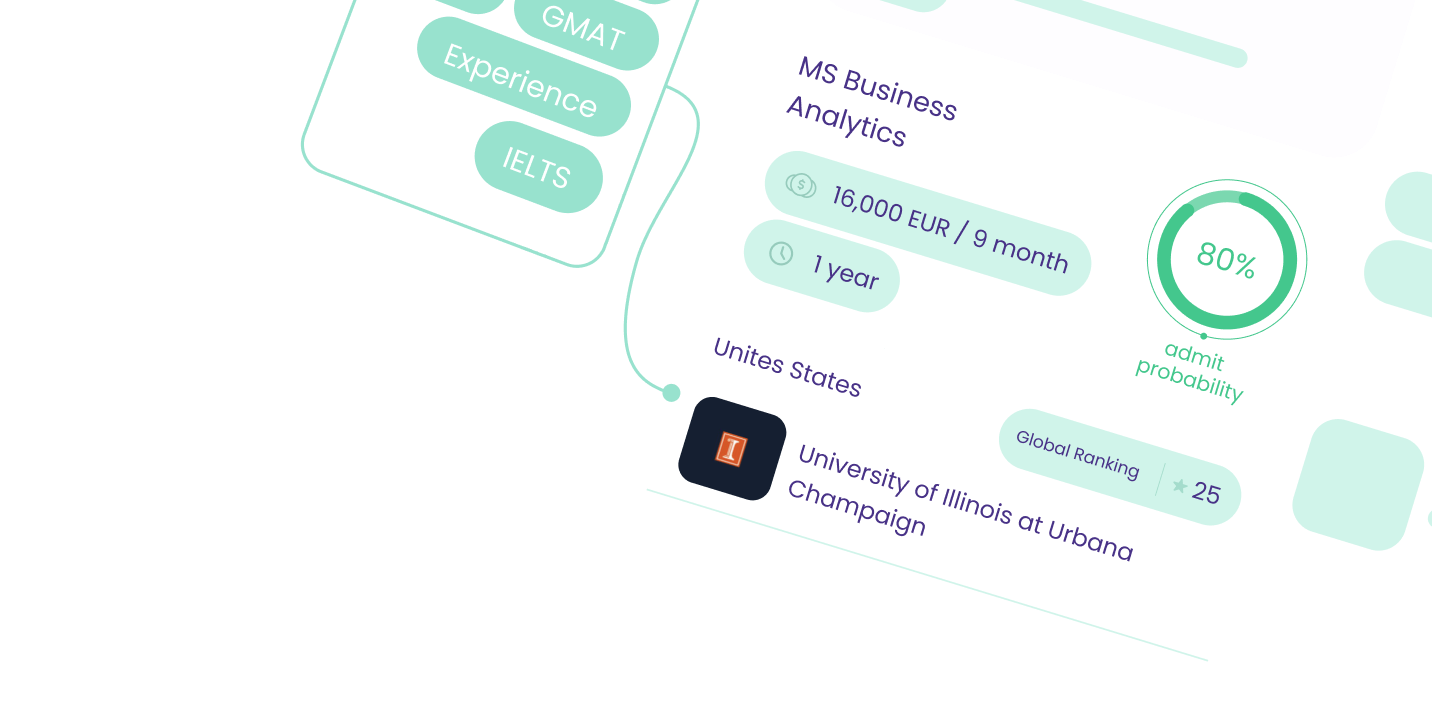A Guide to Canada Student Visa Requirements in 2024 | Study Permit, IELTS Band & Fees
The experience of studying abroad has always been thrilling and rewarding, and in recent years, Canada has become a well-liked choice for international students.
Canada provides outstanding chances for students to pursue their academic aspirations because of its top-notch educational institutions, diversified culture, and welcoming atmosphere. However, it is essential to comprehend and meet the conditions for a student visa before beginning this adventure.
International students must have a student visa, often called a study permit, in order to study in Canada. A study permit may also open doors to eventual permanent residence in Canada after graduation.
With this guide, we hope to give prospective international students a thorough picture of what will be needed to study in Canada in 2024 in terms of student visas. Students can better themselves and their chances of having their application accepted by understanding the conditions for acquiring a study visa, the required IELTS band score, and the associated expenditures.
Let’s explore the Canada student visa requirements in more detail so that you can achieve your academic goals and take full advantage of the opportunities that lie ahead.
AdmitKard – where dreams meet destinations. Click here to start your international education adventure today!
Table of Contents
The Canadian Study Permit – Explained

The Canadian Study Permit is a crucial document that allows international students to study at designated learning institutions (DLIs) in Canada. It serves as legal authorization to reside in the country during your studies. Understanding the intricacies of the study permit is essential for any student planning to pursue education in Canada.
1.1 What is the Canadian Study Permit
The Canadian Study Permit is an official document issued by Immigration, Refugees, and Citizenship Canada (IRCC). It signifies that you meet the requirements to study in Canada and serves as proof of your authorised stay in the country. It is important to note that a study permit does not serve as a visa; it allows you to study while you remain in Canada.
1.2 Who Needs a Study Permit and Who Is Exempt
Most international students will require a study permit to study in Canada. However, there are a few exceptions. If your program of study lasts for less than six months, you may not need a study permit. However, it is essential to check the specific requirements and exemptions based on your country of citizenship, as some nations may have different agreements with Canada.
Ready to embark on a global academic journey? Click now for unparalleled support from AdmitKard!
1.3 Duration and Conditions of the Study Permit
The study permit is usually valid for the duration of your program, plus an additional time known as “implied status,” which permits you to stay in Canada temporarily after finishing your studies. Maintaining your full-time student status and complying with the requirements mentioned in your study permit, such as the school you are authorised to study at and the need to progress towards finishing your program, are critical.
1.4 The Importance of Applying for a Study Permission in Advance
It is essential to apply for study permission in advance. Depending on your nation of residency, the process might take several weeks or even months. You are advised to begin the application procedure as soon as you obtain your acceptance letter from an approved learning institution. Applying early provides plenty of time for processing document requests and unexpected delays, ensuring you can begin your program without any last-minute problems.


Eligibility Criteria for Canada Student Visa Requirements & Permit

To get a Canadian Study Permit, prospective international students must fulfil Immigration, Refugees, and Citizenship Canada’s (IRCC) specified qualifying conditions.
Here are a few standards that candidates must meet to be eligible for a study visa.
1. Age Restrictions and Limitations for Applicants
There are no age requirements for applying for a study visa in Canada. Minors (those under the age of majority, which varies by jurisdiction) may be subject to additional restrictions, such as a custodian in Canada and parental or legal guardian permission. Knowing the precise age requirements for the province you intend to study in is essential.
2. Proof of Acceptance from a Designated Learning Institution
You have to submit proof of acceptance from a designated learning institution (DLI) in Canada to be eligible for a study visa. Provincial and territorial administrations have permitted DLIs to accommodate overseas students. The official government website has a list of DLIs. Before submitting your application, confirm that the institution you intend to attend is a recognised DLI.
Transform your aspirations into achievements! Click to explore how AdmitKard can guide you to international success!
3. Demonstrating Financial Capacity to Support Studies and Living Expenses
You must demonstrate enough money to cover your tuition, living expenses, and other relevant charges while studying in Canada. The amount of money needed will depend on factors such as the program length and the province or city you will study. Bank statements, scholarship letters, or other relevant papers must be submitted as proof of financial capacity.


4. Health and Character requirements
You may be asked to undertake a medical examination as part of the study visa application procedure to verify that you fulfil the IRCC’s health criteria. A medical exam is required by a designated panel physician in specific instances. You must also present a police certificate or other evidence proving your good character and the absence of any criminal past.
5. Showing Intent to Leave Canada Upon Completion of Studies
To be eligible for a study visa, you must demonstrate to immigration officials that you genuinely desire to depart Canada after your studies. A statement of purpose, links to your home country (such as family, property, or work possibilities), and a clear educational and professional plan that corresponds with your future aspirations may all illustrate this.
6. Taking Care of Any Additional Provinces or Programmes
For international students, certain provinces or programs in Canada may have additional criteria or limitations. These are examples of language competency norms, specific course prerequisites, or specialised application processes. Investigating and comprehending any additional requirements that may apply to your chosen province or program is critical.
Language Proficiency Requirements

Language competence is critical for academic progress, social integration, and student experience in Canada. Students with strong language abilities can participate in classroom discussions, grasp course content, write essays and assignments efficiently, and form meaningful connections with classmates and teachers. Furthermore, it makes the transfer to the Canadian educational system easier and improves work opportunities after graduation.
Let’s look at the particular emphasis on the International English Language Testing System (IELTS), minimum band requirements, alternate language proficiency tests, and preparation resources.
Maximize your chances of success abroad! Enroll now for tailored admissions assistance with AdmitKard!
1. International English Language Testing System (IELTS)
The International English Language Testing System (IELTS) is one of the most generally recognised English language competency examinations by Canadian educational institutions and immigration agencies.
The four language abilities assessed by IELTS are:
- Hearing
- Reading
- Writing
- Speaking
It is graded on a nine-band scale, from band 1 (non-user) to band 9 (experienced user).
2. Minimum IELTS Band Requirements Vary by Level of Study
The minimum IELTS band requirements for admission to Canadian educational institutions vary by level of study and programme.
Undergraduate programs, in general, may demand a minimum overall band score of 6.0 to 6.5, but graduate programs, particularly those in competitive subjects, may require scores between 6.5 and 7.5 or higher.
Reviewing the precise language requirements established by your selected school and programme is essential.
3. Alternative Language Proficiency Tests Accepted in Canada
In addition to IELTS, some Canadian institutions accept the Test of English as:
- A Foreign Language (TOEFL)
- The Canadian English Language Proficiency Index Programme (CELPIP)
- The Pearson Test of English (PTE)
These examinations examine language abilities in the same way IELTS does and give an alternate way to demonstrate English competence.
Resources for Studying for Language Proficiency Tests

Practising for language proficiency exams is crucial to get the necessary band scores. Students can find various tools to aid them in their preparation efforts. These include authorised IELTS study resources, online practice exams, study manuals, language programmes, and coaching facilities.
To improve overall competence, it is essential to allow enough time for preparation and practice, concentrating on all four language abilities.
Navigate the complexities of international admissions seamlessly with AdmitKard – enroll for a free consultation today!
Study Permit Fees and Additional Costs

Take a look at the study permit fees, extra charges you can pay throughout the application procedure, and cost-management advice.
1. Study Permit Application Fees
A charge is associated with applying for a study permit. The majority of candidates must pay CAD 150 for a study permit as of the time of writing. However, the most up-to-date pricing information can only be found on the official IRCC website because rates might vary over time. Before submitting your application, satisfy all eligibility requirements and have all required documentation since the application cost is non-refundable.
2. Extra expenses incurred throughout the application process
During the application procedure, there can be other costs to consider besides the study permit charge. These may consist of, but are not restricted to:
(i) Biometrics Fee
Depending on your nation, you could be asked to provide biometric data, including fingerprints and photos. The current cost of biometrics is CAD 85 for a person and CAD 170 for a family.
(ii) Translation and Notarization
You might need to have any supporting documents not in English or French translated by a qualified translator. Additionally, some documents might need notarized or authenticated, which could result in extra charges.
(iii) Travel Expenses
You must budget for travel, lodging, and other expenses if you visit a visa application centre or embassy for biometrics or an interview.
Don’t miss out on the best education opportunities! Take the first step with AdmitKard – contact for free consultation today!
(iv) Medical Examinations
In some circumstances, candidates may be asked to submit a physical examination by a recognised panel doctor. Depending on the doctor and the nation of residency, the cost of the medical examination varies. Planning for this price and booking the medical test far in advance is crucial to guarantee that the application procedure is completed on time.
Payment Options

The IRCC accepts credit cards and debit cards for online payments and other ways of payment for study permit application costs. You must ensure you have enough money and that your preferred payment option is accepted. The payment may also be made in the nation’s local currency, where the application is filed at various Canadian visa application centres and embassies.
It is advised to inquire about the exact payment alternatives at the application centre or embassy in your home country.
Processing timeframes and Potential Delays

Depending on the number of applicants, the season, and the nation of residency, processing timeframes for study permit applications may change. It is essential to look up the projected processing timeframes on the official IRCC website. It is essential to remember that processing times might change and that there might be hold-ups due to incomplete paperwork, unsuccessful background checks, or requests for further information. By filling out the application completely and being ready, potential delays can be minimised.
Your gateway to global education awaits! Enroll now for comprehensive support from AdmitKard!
Tips for Managing Study Permit Costs

Take into account the following advice to properly control study permit costs:
1. Create a budget in advance
Create a budget that takes the cost of the study permit, any additional fees, tuition, living expenses, and any other associated costs into consideration.
2. Look at scholarship options
Look at the financial aid, grants, and scholarship options available to international students.
3. Utilise free resources
Take advantage of the information and guidance that government agencies, immigration websites, and educational institutions freely provide.
Common Mistakes to Avoid

It’s essential to pay attention to detail while filling out the application for a study permit because failing to do so might result in the application being rejected or delayed. Among the frequent errors to avoid are the following:
1. Incorrect or incomplete information
Ensure all application form fields are filled out truthfully and thoroughly. Before applying, double-check the details.
2. Insufficient supporting documents
Provide any necessary supporting papers, including acceptance letters, financial records, and the results of any mandatory language proficiency tests. Make sure these papers are current and adhere to the standards.
3. Missing deadlines
To allow for processing and any unanticipated delays, be careful of application deadlines and submit your study permit application well in advance.
Opening Doors to Excellence with your Canadian Study Permit!

Careful planning and an in-depth understanding of the regulations are essential when requesting a study permit. Your chances of success will significantly increase if you follow the rules and submit an exact and comprehensive application.
Remember that acquiring a study permit is crucial to reaching your academic objectives. You may begin an exciting and fulfilling educational experience in Canada if you carefully prepare, follow the rules, and have a good outlook.
For any more professional assistance, we have our experts ready to attend you!


Frequently Asked Questions
Can I study in Canada without a study permit?
A: In most cases, you need a study permit to study in Canada. However, there are exemptions for short-term courses and some programs. It’s crucial to check the official guidelines and consult your chosen institution for specific requirements.
Can I extend my study permit in Canada?
A: Yes, extending your study permit in Canada is possible. However, you must apply for an extension before your current permit expires. Planning, gathering the required documents, and submitting the application well in advance are essential to avoid any status gaps.
What happens if my study permit application is refused?
A: If your study permit application is refused, you may appeal the decision or reapply. Understanding the reasons for refusal, seeking guidance, and addressing any deficiencies in your application can increase your chances of a successful outcome in subsequent attempts.
What documents required for canada student visa?
To apply for a Canada Student Visa, you typically need a valid passport, letter of acceptance from a Canadian institution, proof of financial support, a completed visa application form, language proficiency test results (like IELTS), and academic transcripts. Additionally, you may require a medical exam certificate and a police clearance certificate. Ensure all documents are accurate, up-to-date, and comply with Immigration, Refugees, and Citizenship Canada (IRCC) guidelines. Requirements may vary, so it’s crucial to check the latest information on the official IRCC website and consult with the designated educational institution for specific program-related documentation.





Comments (0)